News
The development of a new artificial intelligence-driven software PEDAL
PEDAL is an artificial intelligence-driven software platform which integrates an instructional training element with the opportunity for language teachers to develop evidence-based effective language activities for fostering reading, listening, speaking, writing and grammar competence in the language classroom.
The software comprises of three sections:
- (i) Tutorial Section to explain how to use the software.
- (ii) Instructional Training Section to highlight the main characteristics of evidence-based effective activities in language instruction.
- (iii) Material Development Section to create language activities for Reading, Writing, Listening, Speaking, and Grammar.
The main purpose of this software is to provide an effective and user-friendly platform for teachers to develop the following effective language activities using artificial intelligence:
- Interactive-oriented reading comprehension activity
- Composition-oriented writing activity
- Interactive oriented listening comprehension activity
- Exchange-information speaking activity
- Input-oriented grammar activity
Forthcoming book!
A.Benati, Angelovska, T. (2026). Second Language Acquisition: A theoretical Introduction to Evidence- Based Language Teaching. Bloomsbury Publishing.
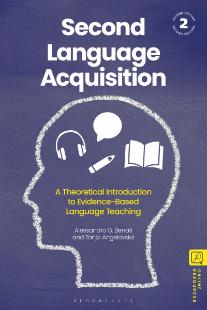
Special Issue in Ampersand Journal: Language teacher education programme according to science
Alessandro Benati has been commissioned to be the guest editor for a Special Issue in the journal Ampersand. The special issue is on the effective components of a language teacher education programme according to science. The nine papers (see titles below) of these special issue, written by expert scholars in the field, will lead the way for the future language teacher education programmes.
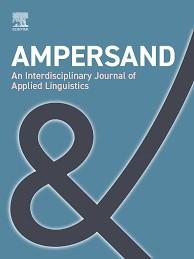
The place of Second Language Acquistion
The place of Psycholinguistics
The place of Bilingualism
The place of language and its components
The place of technology
The place of communication
The place of pedagogical grammar
The place of task-based research
The place of language assessment
Special Issue in Instructed SLA Journal: Language teacher education programme according to science
Principles in contemporary language teaching according to science: Special Issue in the journal Instructed Second Language Acquisition is forthcoming! In this special issue co-authored by Joe Barcroft (Washington University in St. Louis, USA) and Michael Leeser (Florida State University,
USA) papers will analyse scientific findings from research influencing three main areas in contemporary language teaching: vocabulary, language tasks and grammar. Benati’s contribution will be titled '‘What should the components of an effective language teacher education programme be?'’ This paper highlights the importance of introducing language teachers to findings from second language research and theory that are relevant to the learning and teaching of languages. Current language teacher education programmes do not provide effective training in teaching languages!
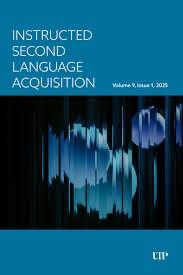
Bloomsbury Applied Linguistics Anthology!
Research Issues and Methods. Bloomsbury Applied Linguistics: Research Issues and Methods -5 Volume set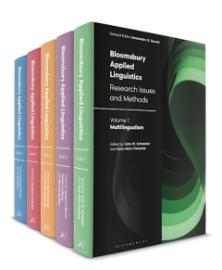
General Editor: Alessandro Benati, Head of School of Education and Professor at the University of Hong Kong (CAES)
Issues in Applied Linguistics is a multi-volume reference set, aimed at a research audience. The set will present an overview of key issues in research across the field of applied linguistics, with an emphasis on the methodologies available to approach these problems. The set will cover key areas of research, theories, approaches and methods across the spectrum of applied linguistics.
The Communicative Manifesto for Contemporary Language Teaching According to Science
Posted 28 February, 2025

The Communicative Manifesto For Contemporary Language Teaching Brochure
- Language, Input & Communication
- Task-Based Language Learning
- Vocabulary Learning & Focus on Form
Prof. Alessandro Benati
UNIVERSITY COLLEGE DUBLIN, IRELAND
Specializes in research on the theoretical framework known as Input Processing, and particularly its pedagogical model Processing Instruction. His another research interest is the effects of formal instruction on the acquisition of linguistic properties in romance and non-romance languages.
Prof. Joe Barcroft
WASHINGTON UNIVERSITY IN ST. LOUIS, USA
Investigates vocabulary acquisition, lexical input processing, and psycholinguistic approaches to different issues in second language acquisition. He is the author of several scholarly books and many research articles in in top journals.
Prof. Michael Leeser
FLORIDA STATE UNIVERSITY, USA
Focuses on the area of instructed second language acquisition, second language comprehension, and input processing, and sentence processing in second language learners and bilinguals.
LANGUAGE UNLIKE RULES
Language is complex, abstract, and it is not learned explicitly.
COMMUNICATION UNLIKE Q/A PARADIGMS
Communication is the interpretation, expression and negotiation of meaning in a context and with a purpose for language exchange.
INPUT AS THE BASIC INGREDIENT
The basic data for language learning is comprehensible and meaningful input.
TASKS OVER DRILLS
Language tasks and not exercises should form the backbone of the language curriculum.
INTERACTIVE OVER MECHANICAL TASKS
Communicative and interactive language tasks can facilitate language learning.
THE TARGET OVER THE FIRST LANGUAGE
The use of the target language in the classroom should be maximized.
MINIMUM, INDIRECT, AND IMPLICIT ERROR CORRECTION
VOCABULARY IS LEARNED, WHEN IT IS
- meaning-oriented,
- comprehensible,
- multi-level,
- frequent,
- and repeated over time.
A FOCUS ON GRAMMAR SHOULD
- include both a focus on form and a focus on meaning,
- be on effective pedagogical interventions (e.g., input flood, textual enhancement, structured input).
More information can be found on our website.
Key Questions in Second Language Acquisition
Posted 18 November, 2024
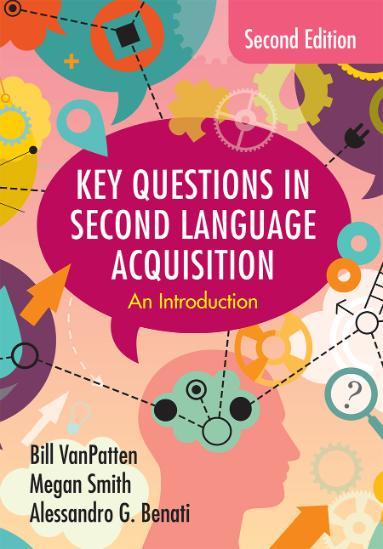
Now in its second edition, this highly accessible introductory textbook establishes the fundamentals driving the field of second language (L2) acquisition research, including its historical foundations. Intended for the novice in the field with no background in linguistics or psycholinguistics, it explains important linguistic concepts, and how and why they are relevant to second language acquisition. Topics are presented via a 'key questions' structure that enables the reader to understand how these questions have motivated research in the field, and the problems to which researchers are seeking solutions.
(opens in a new window)Key Questions in Second Language Acquisition
Second Language Teacher Education
Posted 4 September, 2024
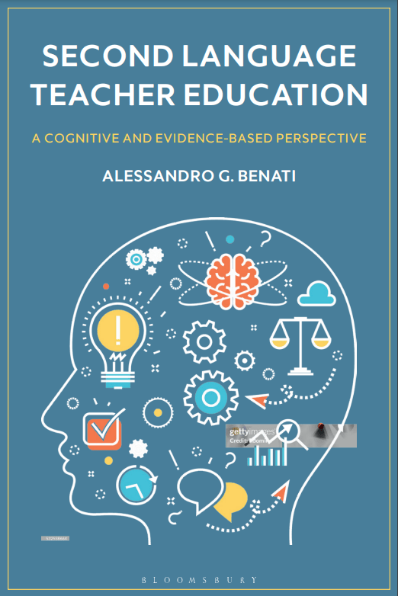
The main aim of this textbook is to provide both trainee language teachers and undergraduate students with an evidence-based second language teacher education programme. This textbook responds to the demand for a teacher education programme which is not based on simply training language teachers to use textbooks. In this textbook, how the principles derived from theory and research in language learning can be applied to day- to-day classroom language teaching pedagogy will be examined.
New Special Issue for the journal Instructed Second Language Acquisition to be published soon! Editor: Alessandro Benati
Language acquisition and language instruction: A neurolinguistics perspective
The idea for this Special Issue generates from the increasing interest of language instructors in the neuroscience of language. Research in the area of neurolinguistics has provided new insights in the acquisition of a second language which might have important implications for language instruction and instructors.
The goal of the proposed Special Issue is twofold: (i) to provide an overall assessment of the current state of the neurolinguistics research database from the point of view of its implications for language acquisition and language processing; (ii) to highlight pedagogical implications of this research for second language instruction.